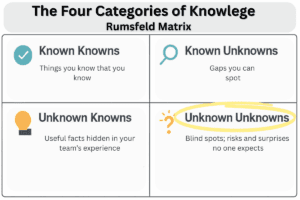The Ultimate Guide To Negotiating Cloud Contracts: Top Tips And Key Issues

This blog post provides an ultimate guide to simplify Negotiating Cloud Contracts like a pro. Included are top tips for navigating negotiations effectively and the key issues typically encountered in such agreements. Moving to the cloud isn’t just about choosing a provider and paying for services. It involves a new relationship which calls for discussing, negotiating, and setting up well-agreed contracts! But the confusing negotiation process can make some organizations hesitate to adopt cloud solutions and reap the benefits.
Without further delay, let’s dive right into becoming savvy negotiators of cloud contracts!
Key Takeaways
- Have a Cloud Negotiation strategy with what you need from a cloud service before signing a contract.
- Understand how the Service Provider’s service charges and fees are charged.
- Make sure the cloud provider gives high levels of service and backs it with service level credits.
- Data security and privacy are very important to protect customer’s data in any cloud deal.
- Ensure you agree with, or negotiate into the agreement, a breach notification clause that aligns with your information security needs.
- Include a contractual Penalty Clause to protect your organization if services stop or slow down.
- Ensure the contract states who will own your data in the cloud.
- It is key to successfully negotiate a termination clause into the contract for discontinuing the use of services to avoid problems at separation.
- You will want to have your Legal Department, or outside Counsel, review the legalese of the agreement.
Understanding Cloud Contracts
 Cloud contracts serve as a crucial blue-print for the relationship between your business and your cloud service provider. These agreements outline critical elements such as payment terms, data security provisions, and service level expectations.
Cloud contracts serve as a crucial blue-print for the relationship between your business and your cloud service provider. These agreements outline critical elements such as payment terms, data security provisions, and service level expectations.
As such, understanding each line of these contracts is essential to safeguarding your interests and making the most of the cloud solutions on offer.
Importance of Cloud Contracts
Cloud contracts are vital when you move to the cloud. They lay out all terms of service, fees paid and what happens if things go wrong. Cloud contracts can help keep your data safe in case of a breach.
They can also set rules about who owns the data once it’s in the cloud. If there is any dispute, your cloud contract will guide how to solve it. Make sure to look at each detail before you sign up for a new cloud service.
Key Elements of Cloud Contracts
Cloud contracts have key parts you should know.
- Service Levels: They tell how well the cloud service must work. You want a high level of service.
- Data Ownership: This says who owns the data in the cloud. It is something you will talk about with the cloud provider.
- Vendor Use of Data: This part says how the vendor can use your data. Make sure it is okay for your needs.
- Price Model: This tells how much you will pay for the service. You need to understand it well.
- Data Security: The contract should tell how your data stays safe in the cloud.
- Service Termination and Migration: This part talks about ending the service and moving data if needed.
- Liability and Indemnification: You must know what happens if things go wrong with the service.
Top Tips for Negotiating Cloud Contracts

Establishing your business needs and requirements is the first step to effective cloud contract negotiation. Once these are firmly defined, it’s crucial to get a clear understanding of the vendor’s pricing model.
Push for service levels and performance guarantees according to your specifications; don’t simply accept what’s on offer. Address data security and privacy concerns head-on – ask hard questions and demand solid answers.
Give significant consideration to data ownership and control issues – who owns your data, where does it reside, who has access? Make no mistake: these elements will set up robust foundations for successful cloud agreements that meet both parties’ expectations.
Define Your Needs and Requirements
You must know what you want before signing a cloud contract. Here are some steps to follow:
- Look at your budget.
- Check your workload needs.
- Think about how much storage space you will need.
- Make sure the cloud can handle your data speed needs.
- Think about if you need more than basic security.
- See if the service offers support when things go wrong.
Understand the Pricing Model
Knowing the pricing structure is key in cloud contract talks. Every cloud vendor has a different way to price their services. Some might charge you per user, while others may bill based on data use.
Take time to dig into the details of these costs. Knowing how much you will pay and what you are paying for helps to keep your budget in check and get the best deal from your cloud provider.
It also aids in striking a good balance between cost and getting the right services for your needs.
Negotiate Service Levels and Performance Guarantees
Getting the best results out of a cloud service means looking at service levels and performance guarantees. You want to make sure your needs get met.
- Cloud providers need to give a high level of service. They should keep your data safe and available all the time.
- Check for promise given by cloud provider. This says how well they will do their work.
- Think about when you will use the cloud service. Make sure that times fit with what the cloud provider can give.
- Figure out what happens if services stop or slow down. Cloud providers should fix it fast, have back up plans or reduce your costs.
- Don’t just trust what providers say. Look for proof on how well they have done before.
- Get a clear scope of work promised by each vendor. Vendors agree here on what they will provide.
- You also need to talk about who owns any new things made based on your data while in the cloud.
Address Data Security and Privacy Concerns
Data security and privacy are big concerns in cloud contracts.
- First, you need to know what data the vendor will gather.
- Next, learn how they plan to keep your data safe.
- Ask if they have set rules for data access.
- You also need to ask the vendor what steps they will take if there’s a breach. It could be a hack or loss of data.
- Last, check how the vendor may use your data for research or studies. This can bring up issues about privacy and safety.
Consider Data Ownership and Control
You need to think about who will own and control your data in the cloud.
- Ask if you’ll still possess your data: Who has ownership rights is a big part of cloud contracts. Know the rules around this.
- Say what work the cloud provider can do with your information: Can they use it for other things too? Make sure this part is clear in your contract.
- Call out how to get back your data if needed: There should be terms on how you can move or copy your data from the provider’s site.
- Look at all parts of the cloud agreement that talk about data use: It should detail not just who owns the data, but who can control it too.
- Make a plan for changes: If there are any big changes to laws or rules, who makes up a new plan? This is key issue too.
- Talk about costs: They add up when dealing with directions on how to use customer data during negotiating contracts.
Key Issues to Consider in Cloud Contracts
When diving into cloud contracts, some key issues demand your attention. Service termination and data migration conditions should clearly outline procedures for smooth transitions.
Fascinate on liability clauses and indemnification terms – they’re crucial in handling potential disputes or breaches. Don’t overlook compliance and regulatory requirements; confirm that your contract adheres to sector-specific laws and standards.
Lastly, ensure the dispute resolution process is fair but firm, laying out a clear governing law framework before signing off with any vendor about client-data usage rights.
Service Termination and Data Migration
You must plan what will happen if you stop using the cloud service. This is called “service termination“. The cloud service must return your data to you. It should be in a format that you can use.
Also, moving data from one place to another is very important. This is known as “data migration“. You need clear steps for this process in your cloud agreement.
Liability and Indemnification
In cloud contracts, the words “liability” and “indemnification” pack quite a punch. Indemnification is a promise made by one side to protect the other from legal cases and pay any costs that arise due to those cases.
For example, if someone sues your business for data theft related to your cloud service, you would want your cloud provider to step in.
However, most of the times, these cloud providers won’t say ‘yes’ to cover damages caused by them not doing their job well under the agreement. This puts businesses at risk. To fight off this threat, many use cyber liability insurance as it covers a lot of damage types like data theft or harm brought on by the very folks you hired to keep your organization running smoothly with their cloud solutions!
So negotiate smartly! Ensure both indemnity obligations of a vendor are clearly stated in an agreement before moving ahead with signing anything. The limitations they have listed might give away how reliable they really are.
Also always double-check what you’re responsible for paying when things go haywire – exactly how much will be drawn outta your pocket? A clear understanding leaves no room for ugly surprises later on.
Compliance and Regulatory Requirements
Cloud contracts must follow laws and rules. These are called compliance and regulatory requirements. It is a key part of any cloud deal. This includes obeying all data privacy rules.
Legal teams need to keep an eye on this during talks for a contract. Changes in the law can also affect cloud contracts later on. So, you have to be ready for that too!
Dispute Resolution and Governing Law
Dispute resolution and governing law are key in cloud contracts. They guide how to solve problems. These could be issues between you and your cloud service provider, such as a breach of contract.
This part tells what rules to use when there is a problem. It also lists which state’s or country’s laws will judge the case. Some firms prefer their local laws for comfort and ease; others may pick out-of-state laws that give them better rights and protection.
Pick these wisely! It helps avoid big troubles later on with the cloud provider if things go wrong.
Vendor Use of Customer Data
In cloud deals, you should watch out if vendors want to use your data. They may wish to use it for things like problem solving or making their service better. But this might be an issue for you.
Privacy is a big thing in today’s world. If the vendor does use your data, they must follow all laws and rules about how to handle it right and keep it safe.
Best Practices for Negotiating Cloud Agreements
To successfully navigate the landscape of cloud agreements, establish clear Service Level Agreements (SLAs) that delineate expected service quality. Ensure rigorous data security and privacy measures are in place to protect sensitive information.
Stay compliant by addressing any regulatory requirements specific to your industry. Define termination and transition provisions clearly so all parties know what is expected during contract cessation or changes.
Lastly, institute effective dispute resolution mechanisms as a contingency plan for potential conflicts down the line.
Establishing Clear SLAs
Setup for clear SLAs is a must. You should:
- Be exact about your needs. Know what you want from the cloud service.
- Look at costs closely. Not all services cost the same. Find a price that fits you.
- Be sure about data control. Know who will own and hold your data.
- Check how changes get made to the SLA document. Make sure it doesn’t change without you knowing.
- Pick good uptime numbers and decide on ‘service credits’ if service fails.
- Be safe with data privacy, always defend against threats.
Ensuring Data Security and Privacy
Making sure your data is safe and private is very important. Here are some steps to follow:
- Look at the cloud provider’s security rules. They should protect your data well.
- Understand who owns the data stored in the cloud. You should always own your own data.
- Know which laws and rules apply to your data. The cloud provider should follow all these rules.
- Think about who can get to your data in the cloud provider’s system. Only people you say should be allowed.
- Make plans for what will happen if the cloud service stops working or ends.
- Always watch how things are going with the cloud provider. This helps you know if they are following all their promises about keeping your data safe and secure.
Addressing Compliance and Regulatory Requirements
Handling rules and laws is important in cloud contracts. Here are some things to think about:
- Cloud service providers should meet all laws. This includes data safety laws.
- The cloud solution must work with your company’s policies and standards.
- You need to see if the provider follows industry best practices. This will help keep your data safe.
- There may be rules for certain types of data, like health or credit card info. Make sure these are part of your cloud service agreement.
- Some places have different rules for moving data across borders. The cloud provider needs to follow these rules.
Defining Termination and Transition Provisions
One big part of cloud service agreements is defining termination and transition provisions. Here are some points to look at:
- Make sure you can end the deal if need be. It’s smart to have a clear way out that does not cost too much.
- Know what happens when the deal ends. This could cover many things like move your data or stop using certain tools.
- A key thing is having a Service Level Agreement (SLA) that tells you what the cloud vendor must do.
- CIOs must make rules about ending and moving on in their deals with cloud vendors.
- You should also decide who owns any left – over data and get this in writing in the deal.
- The main reason for doing all this is to keep your business safe when using cloud services.
- Be ready for all cases, such as when the provider fails or if another vendor offers a better choice.
- Also think about how your data will be given back to you if when the contract ends.
- It may also be worthy to plan how fast you can switch to a new cloud provider if needed.
- Lastly, it’s good to think about any fees paid ahead of time should also be made clear in case of early termination.
Establishing Effective Dispute Resolution Mechanisms
Setting up good dispute resolution is key. It’s a main point in building cloud agreements. Here are ways to set it up:
- Make sure your agreement has clear steps for solving issues.
- Know what problems can happen with the cloud service.
- Set rules on who does what if there is a problem.
- Decide when you need to involve other people or groups.
- Include time limits for finding a solution.
- Define what happens if the problem can’t be solved in time.
FAQs
1. What do I have to consider when negotiating a cloud contract?
When you are negotiating a cloud contract, think about the use of cloud services, your needs for data security, and the provider’s obligations.
2. How can I ensure good service in our cloud computing agreement?
To ensure good service, aim for a firm service-level agreement (SLA). The SLA should state what happens if the provider fails to meet agreed-upon targets.
3. Are there any negotiation tactics that might help with my cloud vendor?
Yes! Being clear about what you want is key. Also knowing who has permission to use customer data can give you an upper hand.
4. Is it possible to switch from one provider to another easily?
Switching providers is not always easy since terms and conditions differ widely among large clouds like Amazon Web Services or others.
5. How important are privacy policies when using Cloud-based solutions?
Very important! Data privacy must be upheld whether on-premises or in the sky so this becomes central during negotiations.
6. Are all areas of liability covered within Cloud Contracts?
Not all contracts cover each area of concern but most should deal with topics such as indemnify or intellectual property rights.
Conclusion
In the end, having a good cloud contract is key. It can help your business work better and be safer. You have to think about many things when you make this contract. Make it strong and clear, so it meets your needs!
If you liked this article, remember to subscribe to MiamiCloud.com. Connect. Learn. Innovate.







